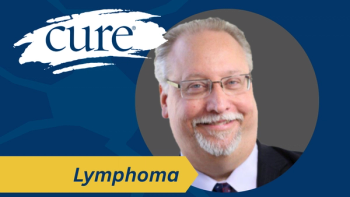
The Future of Follicular Lymphoma Management
Ajay Gopal, MD: One of the most exciting aspects of taking care of folks with follicular lymphoma is seeing how rapidly the field is advancing. I look back to more than 20 years ago when I started my training, we didn't have much in our hand. Rituximab was just becoming available, and now we have so many options that I reviewed.
Looking forward, I’m also really encouraged about what we're going to have to offer patients. For the rare circumstances where follicular lymphoma is a life-threatening situation, I'm hopeful that were going to have treatments such as something called CAR [chimeric antigen-receptor] T-cells. These are cellular immunotherapies, these are ways to reprogram ones immune cells, and it does offer the potential of cure, of eradicating it.
Now, it is a pretty intensive therapy and it comes with risk. But as we learn how to do it more safely and understand which patients might most benefit from this, I suspect this will be expanded. This lifelong treatment approach might not be the case for folks, we can just get rid of it, and folks can move on with their life. I don't think we're quite there yet, but I think we will be getting there for many patients in the appropriate situations.
I think at the other end of the spectrum, we're going to develop more therapies that have even lower toxicity. We have a clinical trial studying a dose of one pill a week, a very low toxicity therapy that's worked quite well as the initial treatment. And many of us in the field are working on ultra-low toxicity therapies, to say how can we make this like managing hypertension, where you can have a pill that has very few side effects, or like managing high cholesterol, and make it into this problem that is not a major problem for folks.
Those are ends of the spectrum. For serious situations, we will have a way to get rid of it and try to reduce the risk with things like CAR T-cells or something else called bispecific antibodies where we can attach the immune cell to the tumor cell by giving an intravenous infusion. Then at the other end of the spectrum, we will have low toxicity therapies to treat this like high cholesterol.
I would like to close by saying these are very exciting times in terms of our options for folks with follicular lymphoma. When you have this historical perspective about how much has changed and how much is changing, I am so gratified about how we are able to help our patients who suffer with this diagnosis. We still have a lot of work to do. I would encourage everyone to not be bashful about asking about options and asking about reaching out to see someone who specializes in this area because these are complicated decisions and don't typically need to be rushed.
Transcript Edited for Clarity




